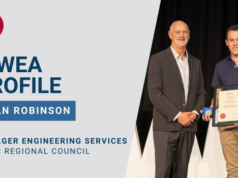Education is defined by Merriam-Webster as the process of gaining knowledge, skill, and development from study or training. Training, on the other hand, is defined by the Cambridge English Dictionary as the process of learning the skills one needs to do a particular job or activity. It’s obvious from these definitions that, while education and training are absolutely related, they are by no means the same.
Both have their place when it comes to professional development; However, it is important to understand the distinction. In recent years, IPWEA’s core strategy has been to help educate and develop our members in the asset management profession.
Asset management has come to the fore in recent times with infrastructure spending and population growth. Simply put, more money is being spent on local government infrastructure (much of it coming from recent state and federal stimulus programs) and a greater number of people are interfacing with each asset. Increasingly, councils are concluding they need dedicated staff to manage these assets effectively.
Effective asset managers need to be highly skilled – understanding asset lifecycles, maximising the return on investment, working with finance to understand depreciation and how assets can (and should) be managed over the long term. As such, comprehensive education is a must.
Education is not just about the transfer of knowledge it’s about learning how to apply the expertise learnt. The difference is subtle but important. Only by truly understanding key areas of information to a level of depth can you use this to make informed decisions and apply to real-life scenarios.
Asset managers who work in water infrastructure, roads and bridges, parks, for example, and manage those assets over the long term. I have stated it many times before, “it’s not just about building the road, it’s also about how you manage that road over the long term.”
We take a view on asset management, looking at the whole lifecycle of the asset, not just the development of it. You need to be multi-skilled with an array of capabilities that appreciate the unique inter-relationship between the disciplines of engineering and finance.
With all this being said, there is demand for educational programs that are practical, transfers knowledge and applies that knowledge in a ‘safe’ environment. In my view, you can only achieve that with a comprehensive program that is based off best practice, involves interaction with peers and experienced professionals, and provides formal assessment that is relevant to your place of employment. A long term view and lifelong learning are paramount. Learners also want to be recognised, as they should, which is why we have worked with the World Partners in Asset Management to provide the opportunity for an international designation.
To find out more about the IPWEA AM Pathway please visit. www.ipwea.org/pathway














